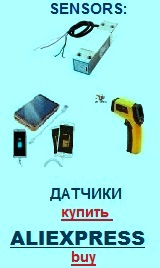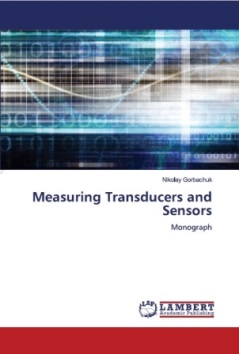Transducers, gauges, sensors - Information portal © 2011 - 2025 Use of material is possible by placing an active link
Low-temperature (cryogenic) resistance thermometers (thermistors), and thermocouple. Temperature measurements in the cryogenic region.
To measure the temperature in the cryogenic region using semiconductor and metal sensors - resistance thermometers (thermistors), thermocouples and with suitable characteristics (sensorse.com/page9en.html).
Very often, the measurements at low temperatures to be conducted under the presence of strong magnetic fields. Therefore, low temperature thermometers (sensors) other than a good sensitivity to temperature and stability characteristics should have a low sensitivity to the influence of the magnetic field. Development, research and manufacturing of cryogenic thermistors (as well as other sensors for cryogenic range) are engaged in such well-known organizations as VNIIFTRI (Russia), LakeShore (USA), Institute of Semiconductor Physics (Ukraine), etc.
Of the known metallic resistance thermometers can be noted platinum resistance thermometers, which are characterized by high metrological characteristics. However, for example, the magnetic field B = 2 T at 12 K causes an increase in the resistance equivalent to 5 K. Note the effect of the magnetic field is possible only at temperatures above liquid nitrogen temperature (77 K).
Rhodium-iron resistance thermometers are less sensitive to magnetic fields. At 4.2 K the field of 3 T leads to an increase in resistance by 3% (equivalent to approximately 0.5 K)
Of semiconductor thermistors most widely adopted germanium thermistors. They have good long-term stability, high sensitivity (≅ 100% / K at 4.2 K) can ensure the accuracy of the order of 0.01 K. Produces germanium resistance thermometers of the bulk germanium, dispersed (sensorse.com/page29en.html), germanium films on insulating substrates. There are germanium thermistors, which are due to the low value of the magnetoresistance in magnetic fields up to 6 T to ensure accuracy of 0.01 K.
Addition of germanium to make use of cryogenic thermistors and other semiconductor materials such as gallium arsenide. However, it is considered that the metrological characteristics of these thermometers are generally worse than germanium.
There are also carbon sensors - resistance thermometers, which are often used for measuring temperatures in the cryogenic region in the presence of magnetic fields. This thermometer Allen-Bradley Speer, Mitsusita, TSU (manufacturer VNIIFTRI) and TVO. The literature indicates that, for example, thermometers, TSU provides reproducible ΔT / T with an accuracy of 0.0002. In a magnetic field of 6 T at 4.2 K to 0.35 K. The error in the TVO thermometers T 6 ensure the accuracy of better than 0.12 K.
Bases of work thermo-resistors
Thermo-resistors. Principle of work
Thermistors. Thermo-resistors
Platinum thermometers of resistance
Platinum and copper thermo resistances
Low-temperature (cryogenic) thermometers
Semiconductor lov-temperature thermoresistors
русский / english
Home >> Bases of work thermo-resistors >> Low-temperature (cryogenic) resistance thermometers
• Information about various converters and sensors of physical quantities, parameters of various physical processes is presented.
• Electrophysical properties and effects in various electrical materials.
• Theory, experimental results, practical application

See also:
CONVERTERS, GAUGES, SENSORS
Information, news, advertising


